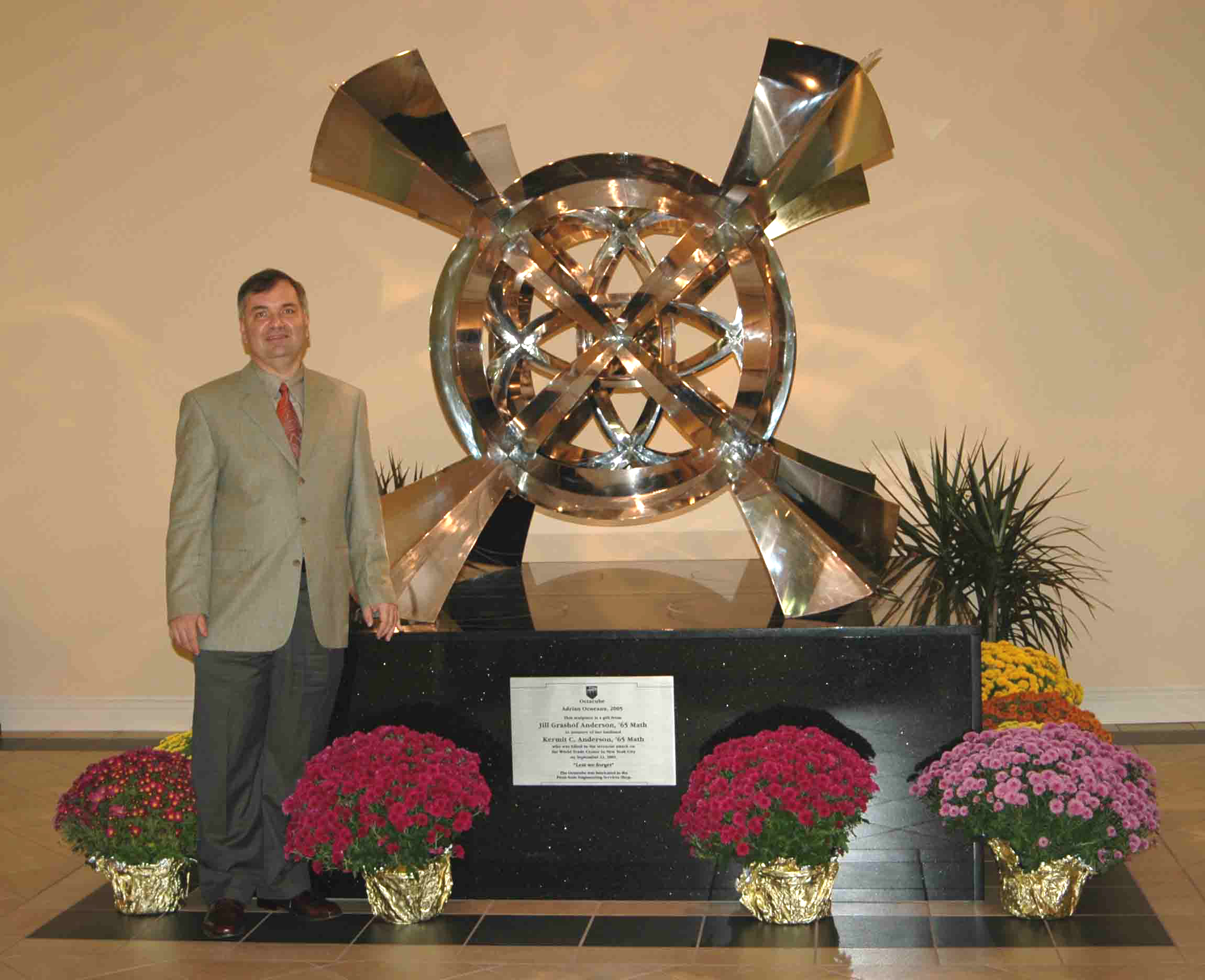What do you do in your math class? This is a short sample of what Calculus II with Adrian Ocneanu sounds like:
On my first day of college classes, Dr. Adrian Ocneanu walked into class and immediately launched into a lecture about historical climate oscillations and trends, the rise of primitive farming, and the history of calculus. I honestly thought I might be in the wrong class, but a quick glance at the bewildered facial expressions around the room confirmed that everyone was just as confused as I. Fifty minutes later I left the classroom in a mental daze, attempting to comprehend what had just occurred. I wasn’t sure how it related to Calculus II, but I could tell that Professor Ocneanu wasn’t just a math professor–he was a true genius, and I knew it was going to be quite an interesting semester of Math 141H.
Professor Ocneanu is one of those special college professors everyone talks about–in a good way. He is from Romania and, according to him, he accent is most useful for impersonating Dracula on Halloween. He participated in the International Math Olympics in 1973 and 1974, earning silver and gold medals. He was offered the opportunity to earn his PhD from the University of Warwick in 1983, which he completed in 11 days. He has lectured all over the world, and he is fluent in about 10 different languages. His field of research is quantum field theory and operator algebras (…what?), but his knowledge and skills seem almost limitless. He sings opera and tangos in class (he claims to have a couple thousand stored on his computer), but before the last note of the accompaniment is done resonating he’s at the chalkboard beginning his lecture.
And the lectures are as challenging as they are fun. It’s hard to go through a class without laughing (in disbelief, awe, or humor), but Professor Ocneanu has very high expectations during lecture. He’ll almost never tell you information outright–of course he could just tell you a formula, but instead he’ll lead you to it, taking you through all the steps of reasoning as if you were a scientist discovering it for the first time and then showing you the proof and logic behind it. It’s a rewarding but complex process. Some of his favorite expressions used during lecture include: “Come on guys, are you sleeping??” (when you don’t answer a question fast enough and he thinks you aren’t paying attention, but really you have no idea what the answer is); “Nopes!” (when what you say isn’t correct–this one is used quite often); “Come on guys, you must have learned this in grade school!” (usually accompanied by a grin, it is used in reference to something extremely complicated you most definitely did not learn in grade school and probably not in high school either). But the amazing part is that he actually did learn most of the mathematics in our Calculus II course in grade school.
The class is hard, but Professor Ocneanu tries to introduce his students to a new way of thinking about problems, focusing on discovery, logic, and patterns rather than memorization without comprehension. He says, “When you look at an idea in science or mathematics, always think of how you could have discovered it yourself.”
And as a reward after quizzes he sometimes brings in homemade desserts from his wife. I’d say that’s a pretty sweet deal.
We learn calculus, but along the way he introduces us to many topics outside the scope of the ordinary course–problems and concepts that are thought-provoking (such as working with objects in an infinite number of dimensions). One of Professor Ocneanu’s more famous works is the Octacube, a sculpture in display in the McAllister building at Penn State. It is a sculpture of a 4-dimensional solid that he designed and Penn State’s machine shop built. Since a 4D object cannot exist in our 3D world, the sculpture is actually a “shadow” or projection of the 4D object, a process which he showed us in class before we took a field trip to the sculpture, a foot race that he handily won.

Dr. Adrian Ocneanu with his sculpture, the Octacube
Although I know I’ll never even come close to the level of Professor Ocneanu’s knowledge of mathematics, it is an honor to be in his class and to have the opportunity to learn from such a brilliant person, even as an freshman. The fact that Penn State has world-renowned professors like Ocneanu is a tribute to the university’s globally-recognized academic prowess, and it makes me proud to be a Penn State student.

Recent Comments